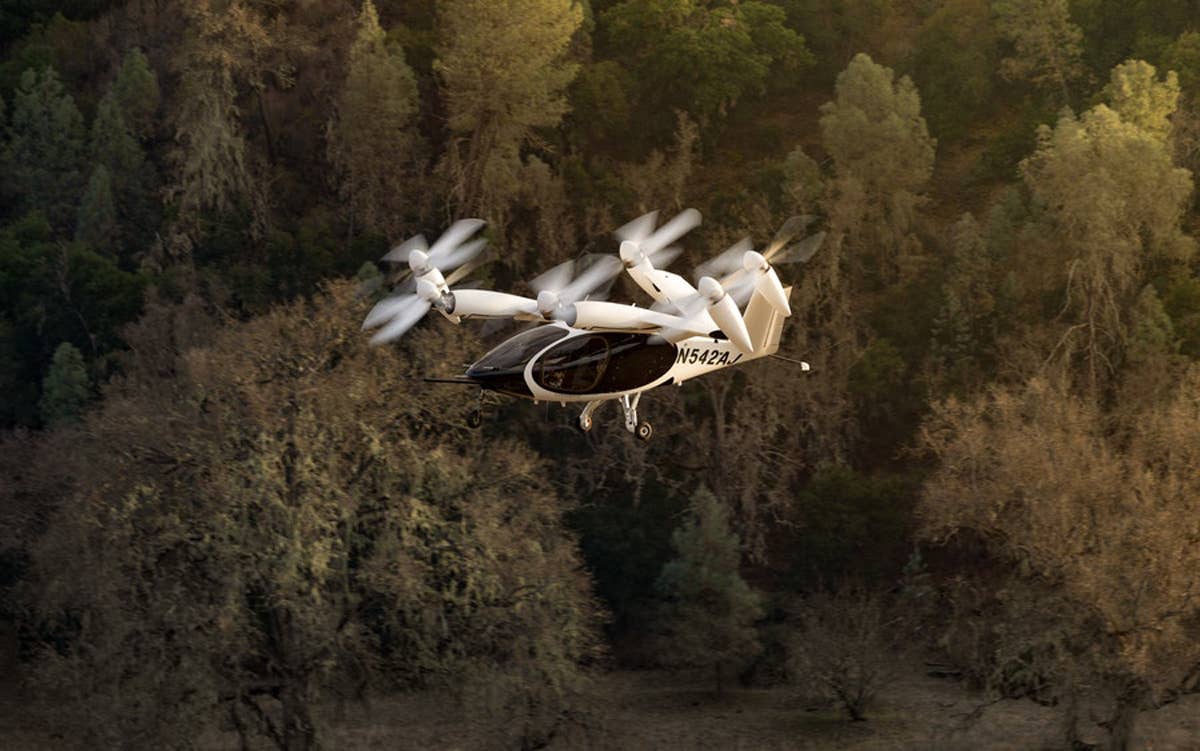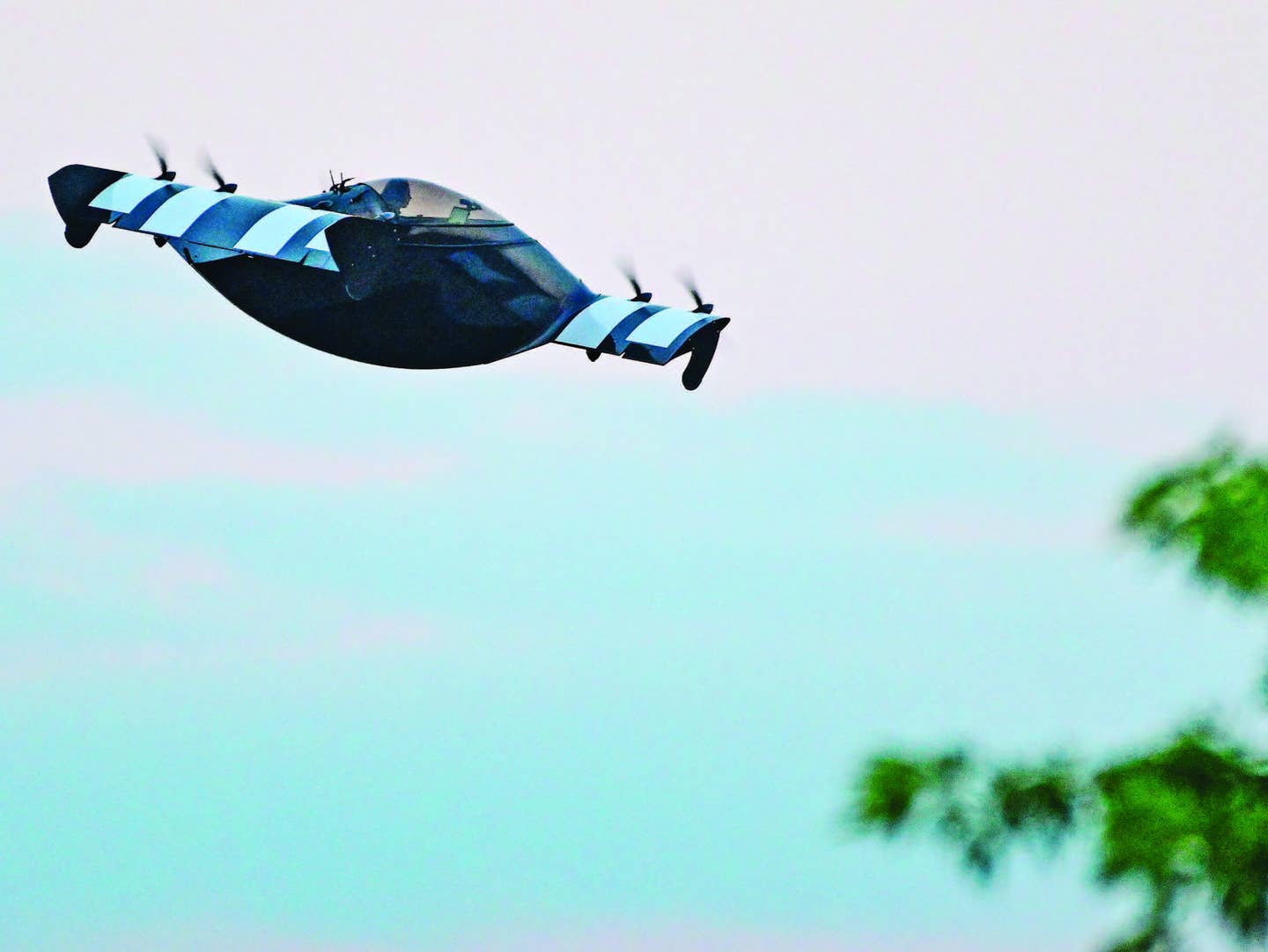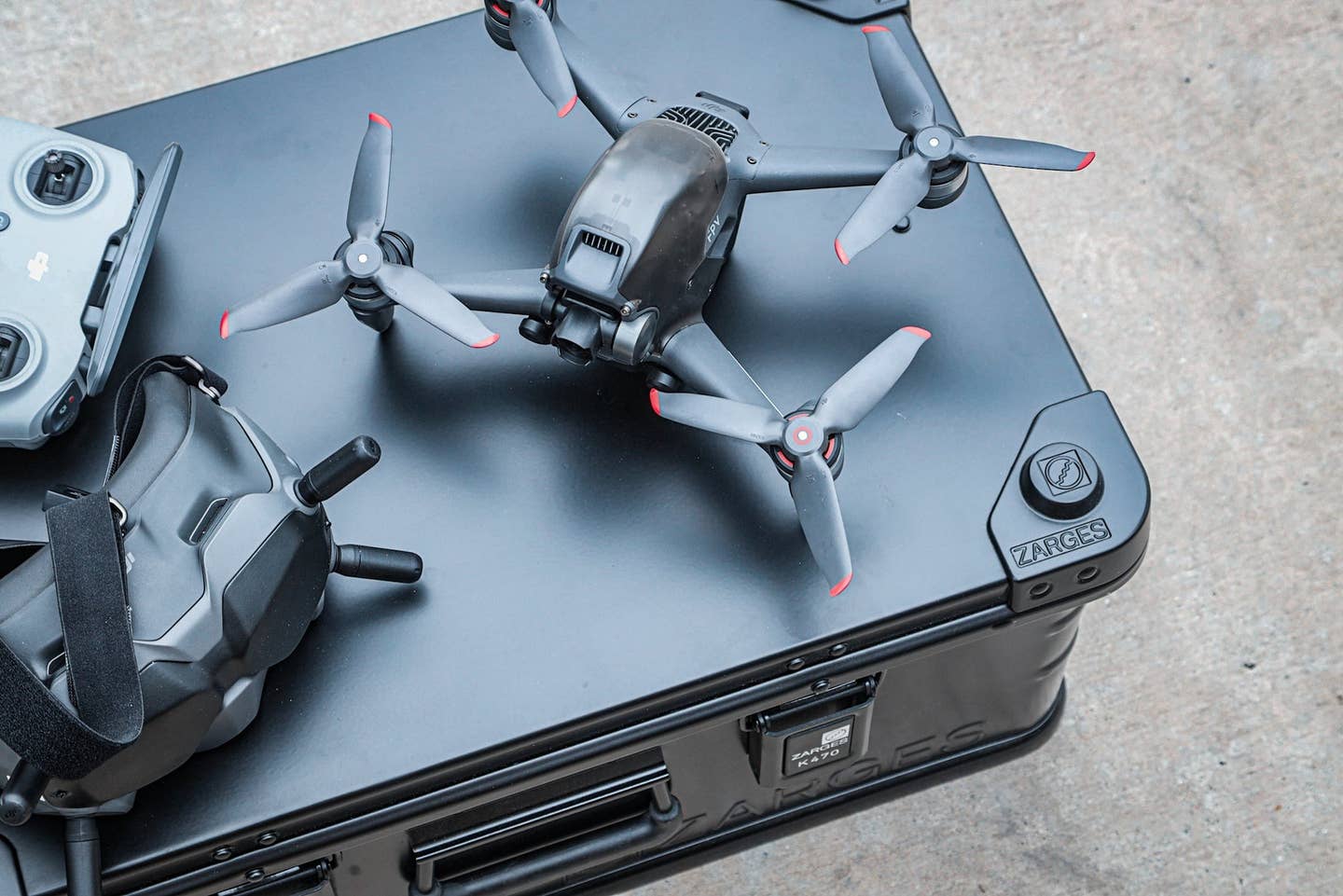
Joby Aviation is now focusing on reaching an altitude of 10,000 feet during envelope expansion flights. [Courtesy: Joby Aviation]
Joby Aviation, Signature Flight Support, and JetBlue have joined up to create a path to using aviation and electric credits on the carbon credit market in concert with the development of electric- and hydrogen-powered aircraft. By establishing such a path, the consortium aims to ensure the carbon credit market includes environmentally friendly aircraft.
While the aviation industry overall contributes between 2 to 3 percent of all global greenhouse gas emissions, the sector not only attracts a lot of attention, but the powerplants used have been most resistant to “decarbonize” through electrification or other means. Initial work using sustainable aviation fuels and various nascent electric- and hydrogen-powered aircraft programs in varying stages of development can be supported better if they are recognized in the carbon markets underway. Those centered on aviation “should include the commercial operations of these new, green aircraft in order to create a direct, in-sector way for today’s environmentally-conscious airlines and operators to offset their emissions from conventionally-powered aircraft and support the green future of flight at the same time,” according to Joby Aviation.
Joby is one of those companies with an electric VTOL in development, projected to launch in 2024. The vehicle’s design calls for a pilot and capacity for up to four passengers, with a range of 150 miles and a net zero emissions profile. Signature Flight Support has been a leader in providing sustainable aviation fuel (SAF) to its customers at an increasing number of the FBOs in its network both in the US and around the world. JetBlue became the first airline in the US to achieve “carbon neutrality,” which it did in 2020, for “all of its domestic flights through the purchase of carbon offsets from solar, wind and forestry projects all across the globe,” according to the Joby press release.
“With JetBlue and Signature, we’re opening up an entirely new path for the aviation industry to more quickly move to sustainable energy sources,” said JoeBen Bevirt, founder and CEO of Joby Aviation. “We invite additional partners to join us and hope these agreements will be the first of many that link today’s air travel to the clean future of flight.” The companies see the first impact from electric- and hydrogen-powered aircraft in short-haul networks, still to come, while the market for SAF-based credits is underway today. According to the release, “Operators such as Joby will conduct an analysis of aircraft energy usage, measure emissions based on the source of the power used by the aircraft and generate credits commensurate with the emissions reduction achieved.”

Sign-up for newsletters & special offers!
Get the latest FLYING stories & special offers delivered directly to your inbox






